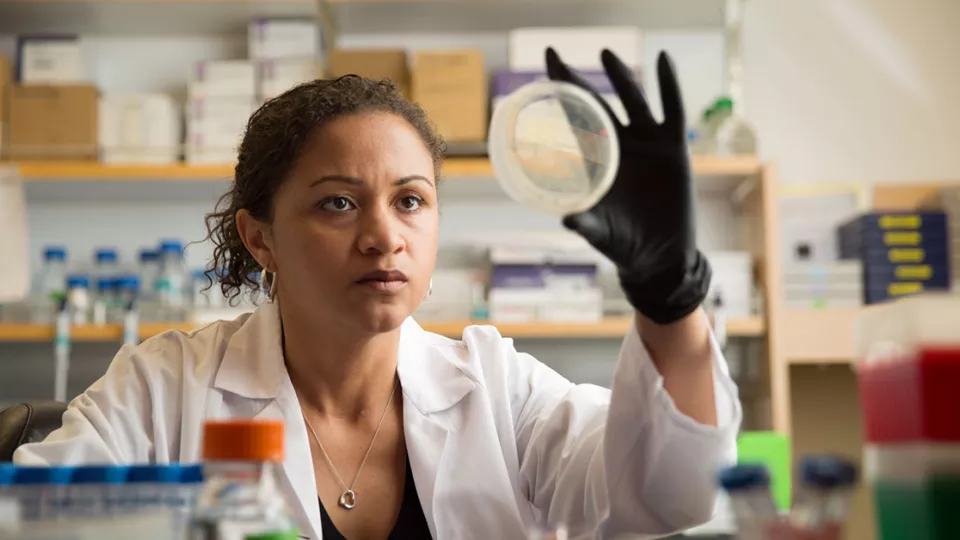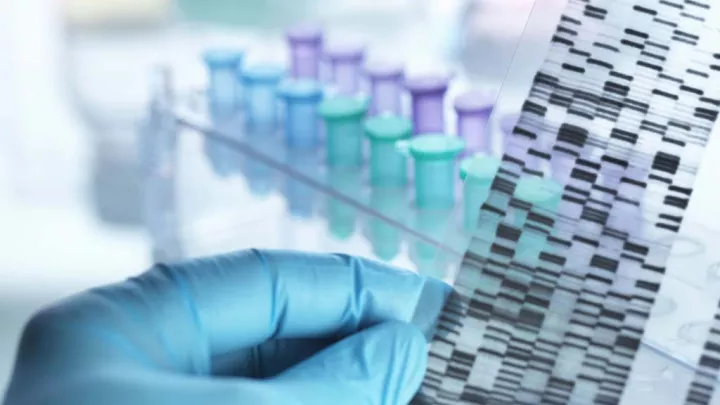
Senta Georgia, PhD, Receives Hutton Rising Star Award From Fellow Beta Cell Researchers
Senta Georgia, PhD, first attended the Western Region Islet Study Group (WRISG) meeting as a graduate student in 2004. This year as a recipient of the 2022 Hutton Rising Star award, accompanied by graduate students of her own, Dr. Georgia will present the John Hutton lecture at the November 28-29 meeting. WRISG is focused on training and information exchange for islet cell biology investigators from Western Canada and the U.S.
“It really does feel like a full-circle moment for me,” said Dr. Georgia, a principal investigator in the Center for Endocrinology, Diabetes and Metabolism at Children’s Hospital Los Angeles and a member of the Developmental Biology and Regenerative Medicine Program at The Saban Research Institute. “I've been in beta cell development and beta cell regeneration my entire career. The people in that room have been supportive of my career and helped me become the scientist that I am, so for them to acknowledge my work is a real honor.”
Her talk will discuss the strong data her lab has generated about a well-studied protein, Neurogenin-3, proposing that its perceived role in insulin cell differentiation is misplaced. She will suggest that Neurogenin-3 may not be solely focused on endocrine pancreatic cell differentiation; but that this protein is necessary for all pancreas cells to differentiate from stem cells.
Dr. Georgia’s lab has also been working on the relationship between COVID-19 and diabetes. “I think that part of my job as a new investigator is to challenge the paradigms that exist in our field. My work is doing that, and that may be one of the reasons it was recognized,” said Dr. Georgia, who is also an Assistant Professor of Pediatrics at the Keck School of Medicine of USC.
Dr. Georgia will bring along a graduate student who is pioneering new techniques in imaging and metabolism and coupling them with older technologies to develop insights into how cells change in response to diabetic insults and progression. She will also introduce two new students in her lab to the meeting. Last year, her senior graduate student won an award for a student presentation and will be submitting abstracts to next year’s meeting.
To inspire trainees to enter and stay in the field, in addition to addressing shifting scientific paradigms, Dr. Georgia intends to discuss some shifting social paradigms about who is a scientist and what it takes to be one.
“I will acknowledge the people in the room who have been supportive of my career over time, but also some of the elephants in the room as I’m always the only black investigator anywhere I go,” she said. “We need to do better in terms of investments in trainees and pipeline programs. It is important that inclusivity accounts for different types of people but is also gender-inclusive.”
She makes it a point to share with trainees that she is a mother of four small children under the age of eight. “I want people to know what is possible,” Dr. Georgia said. “And I don’t want to be afraid to talk about these things.”


